Photos: Emma McIntyre/BBMA2019/Getty Images for dcp; Doug Peters/PA Images via Getty Images; Kevin C. Cox/Getty Images; Paras Griffin/Getty Images for BET; Samir Hussein/WireImage
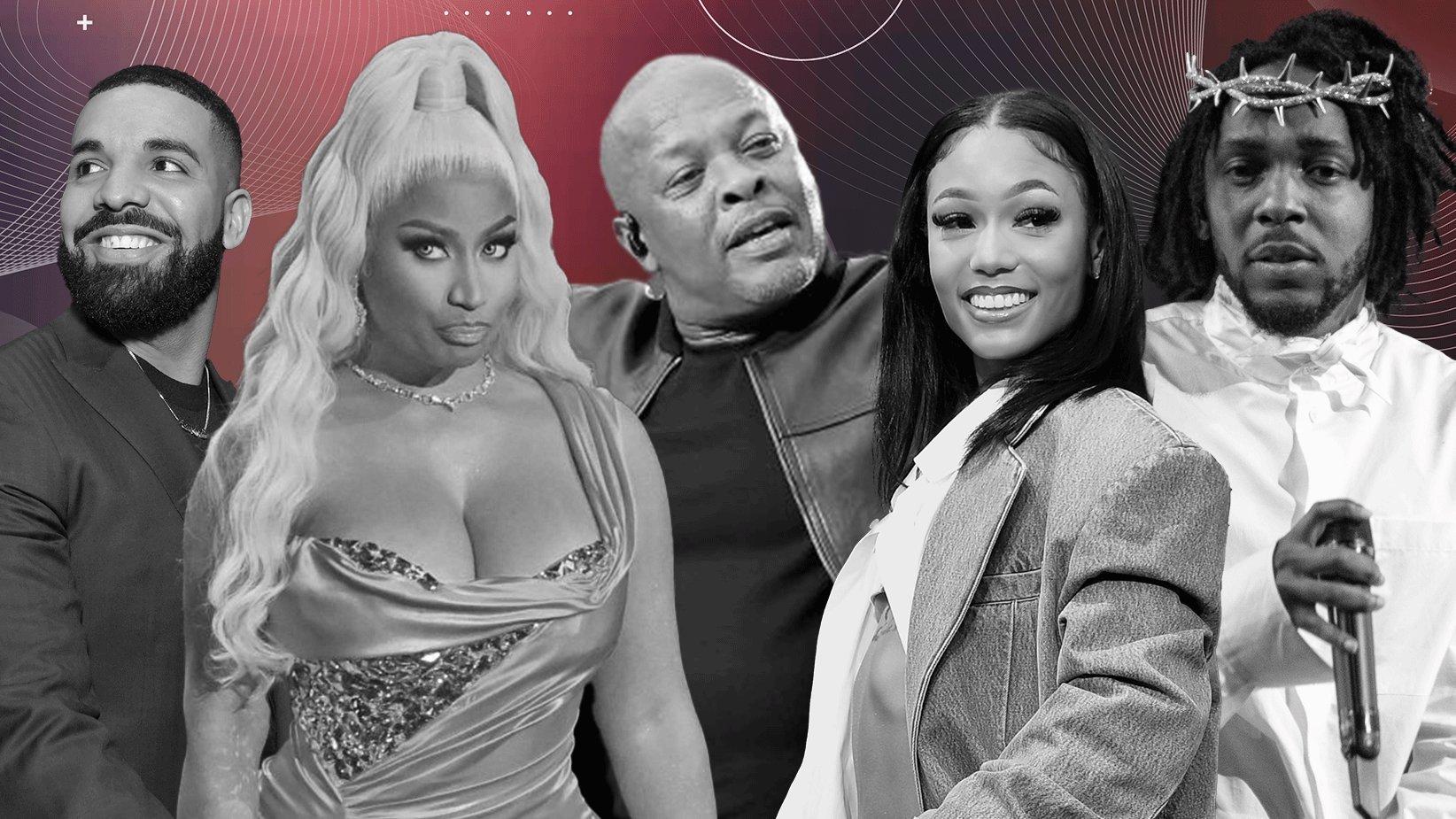
list
2022 In Review: 6 Trends That Defined Rap
This year has been one of transition, where old school came back as the genre's freshmen stood poised to take over. GRAMMY.com revisits six rap trends from 2022 that spawned from multiple generations of artists.
In 2022, rap seemed to be slowly evolving into something new. It was a year when long-gestating regional and cultural trends reached a new fever pitch. Savvy listeners seemed more focused on the emerging voices who were breathing fresh life into the form, even though established stars continued to earn critical and commercial acclaim.
This trajectory resulted in the sense that the past year has been one of transition, and that 2023 will be an even better season where the genre's freshmen are poised to take over. Only time will tell, but while you wait for the first fire releases of the next year, revisit six rap trends from 2022 that spawned from multiple generations of artists.
Jersey Club Goes Beyond The Garden State
Every few years, the rap community rediscovers the pleasures of flowing over electronic beats. In 2022, the sound of the moment was Jersey club, a hybrid of house and bass music that fueled scene leaders such as Bandmanrill (who released his debut album Club Godfather), DJ/producer Uniiqu3, and Unicorn 151 aka Killa Kherk Cobain. Meanwhile, a parallel wave developed in Philadelphia with tracks like 2Rare’s "Cupid" and Zahsosaa, D Sturdy and DJ Crazy’s "Shake Dhat."
Jersey club inspired mainstream artists as well. Drake pulled from the sound on his dance-music opus Honestly, Nevermind, and collaborated with 2Rare on the hit single "Sticky." It also fueled club-ready remixes like Coi Leray’s "Players (DJ Smallz 732’s Jersey Club Remix)."
Women Unite For Posse Raps
Anyone who fondly remembers women-only ciphers such as Brandy’s "I Wanna Be Down (Remix)" and Bahamadia’s "Three the Hard Way" will delight at how the format is making a comeback.
For "Super Freaky Girl (Queen Mix)", Nicki Minaj gathered an all-roster that included JT from City Girls, BIA, Katie Got Bandz, Maliibu Miitch, and Akbar V. On "Shabooya," producer Hitkidd gave mic time to Memphis rappers Gloss Up, K-Carbon, Slimeroni, and Aleza. Meanwhile, ShantiiP collaborated with Kash Doll, Rubi Rose, and Dream Doll on her "Abow (Remix)." The nascent trend demonstrates how women have begun working collectively again — with or without the boys’ help.
Rap's Nepo Babies Come Of Age
It’s not unusual for children of famous rappers to follow their parents into the business. Past years have seen the emergence of scions such as Droop-E (son of E-40), Lil Tracy (son of Ishmael Butler of Digable Planets), Cory Gunz (son of Peter Gunz), and Jaden Smith (son of Will Smith). But 2022 may be the first year where a second-generation rapper arguably exceeded her father’s mainstream appeal.
Coi Leray scored a Billboard top 40 hit ("Blick Blick" with Nicki Minaj) — a feat her estranged father Benzino never managed — while releasing her debut album, Trendsetter. King Combs hit number one on Billboard’s Mainstream R&B Hip-Hop Airplay chart, surpassing famed father Sean "Diddy" Combs' latest single "Gotta Move On" in the process.
Back To The Old School
When Mount Westmore’s Snoop, Cube, 40, $hort hit the Billboard top 200 albums chart in early December, it was yet another sign that golden-era artists are issuing quality albums, albeit on a smaller scale than their career peaks.
Still, in an era when rap fans are all too aware of how middle-aged hip-hoppers seem especially prone to the ravages of time — rest in peace to DJ Kayslay, Coolio, and Don Newkirk — it was heartening to see musicians in their 50s continue to hone their craft. Examples include Chill Rob G of "The Power" fame, who dropped Empires Crumble on Chuck D’s SpitSLAM label; KRS-One’s IMAMCRU12, Diamond D’s The Rearview, Daddy-O of Stetsasonic’s First Team, Frukwan of Stetsasonic and Gravediggaz’s Nightmare in B-Minor, and Tragedy Khadafi’s Immortal Titans Vol. 2. Meanwhile, Dr. Dre prefaced his triumphant showcase at Super Bowl LVI with his EP-length soundtrack for "Grand Theft Auto: The Contract."
As the genre moves into its fifth decade and beyond, here’s hoping its pioneers continue to evolve along with it — without dying before they grow old.
Here Come The Big Steppers
"Big steppers" is an old-school phrase that means exactly what it says: someone whose sheer presence leaves an impact. In recent years, the phrase has percolated through rap songs by Youngboy Never Broke Again, Young M.A ("Big Steppa"), Roddy Ricch ("Big Stepper"), and Stunnaman02 & Quakebeatz ("Big Steppin’").
The term seemed to peak in usage in 2022, thanks to Kendrick Lamar, who used the phrase multiple times — including on "Worldwide Steppers." The track is both literal through the sound of tap dancers, and metaphorical in the sense of Lamar navigating the earth through the prism of his career. Meanwhile, deep album cuts like Rome Streetz’ "Big Steppa" and Yo Gotti’s CMG Crew ("Steppers") put a vintage spin on boasts of being the big men on rap’s campus.
DJ Drama Connects With Everybody…Again
In 2022, DJ Drama was a one-man wave, reconnecting rap with its dirty South roots. The Philadelphia-raised, Atlanta-based DJ was one of the biggest names during the height of the mixtape boom in the mid-to-late aughts, hosting dozens of projects a year with soon-to-be famous acts like Young Jeezy (2004’s Trap or Die) as well as established stars such as Lil Wayne (the Dedication series) and Pharrell Williams (2006’s In My Mind: The Prequel) through his Gangsta Grillz and Aphilliates imprints.
While DJ Drama hasn’t disappeared in the years since, 2022 may be the first to find Drama approaching the productivity of his most successful era. He helmed a critically acclaimed mixtape with Baton Rouge’s Youngboy Never Broke Again (Ma’ I Got a Family), helped promote rising stars like Oakland’s Symba (Results Take Time) and Detroit’s Icewear Vezzo (Paint the City), worked with New York rap star Dave East (Book of David), and scored a chart-topper with the Dreamville crew’s D-Day: A Gangsta Grillz Mixtape. He even reunited with Jeezy for Snofall, a throwback to the latter’s trap glory years. Working with artists from different regions and generations, Drama proved he still has plenty of genre-wide impact.

Photo: Amy Lee
list
5 Rising L.A. Rappers To Know: Jayson Cash, 310babii & More
From San Diego to the Bay Area, Seattle and beyond, the West Coast bursts with talent. Los Angeles is at the heart of this expanse, and these five rappers are just a few who are showcasing the vibrant sounds of West Coast hip-hop.
GRAMMY winners Kendrick Lamar and Mustard have long repped their California roots. Earlier this summer, their powerhouse anthem "Not Like Us" brought West Coast rap back to its roots and shone a global spotlight on the scene.
Lamar and Mustard are at the forefront of a renaissance in West Coast rap. Their shared roots in Southern California cities — Mustard from Los Angeles and Kendrick from Compton — adds authenticity and resonance to their partnership. Their undeniable chemistry was on display in the video for "Not Like Us," which received a million views less than an hour after its release.
Mustard's signature beats and Lamar's profound lyricism has resurfaced the sound and culture that makes West Coast rap so unique and paved the way for a new generation of artists. All signs suggest that another impactful collaboration may appear on Mustard's upcoming album, Faith of A Mustard Seed.
Learn more: A Guide To Southern California Hip-Hop: Definitive Releases, Artists & Subgenres From L.A. & Beyond
Kendrick Lamar headlined the electrifying Pop Out concert on Juneteenth, which also featured sets from Mustard and DJ Hed. The event saw a handful of L.A. rappers, opening for Lamar in a showcase of the vibrant talent that defines the region's rap scene.
The West Coast is a vast reservoir of talent, stretching from the Bay Area to Seattle. At the heart of this creative expanse is Los Angeles, which brings fresh perspectives, innovative styles, and renewed energy to hip-hop, ensuring the genre thrives. With the stage set for these newcomers to shine, it's the perfect time to take a closer look at some of the rising talents poised to impact the rap scene. While this list only scratches the surface, it offers a glimpse into the diverse and exciting talent from SoCal, the epicenter of the West.
Blxst
Arising from Los Angeles, Blxst initially played the background as a producer but soon demonstrated his ability to excel across all facets of music creation. Blxst's breakout moment came with his platinum-certified single "Chosen," which solidified his place in the music industry. His collaboration on Kendrick Lamar's "Die Hard" from Mr. Morale And The Big Steppers further showcased his skill for crafting hooks that elevate tracks, resulting in two GRAMMY nominations.
As he prepares to release his debut album, I'll Always Come Find You on July 19, Blxst stands at a pivotal point in his career. With a great resume already to his name, his forthcoming album promises to showcase his undeniable talent and leave a lasting impact on the West Coast music scene.
Bino Rideaux
Bino Rideaux is a South Central native and frequent collaborator with the GRAMMY-winning rapper Nipsey Hussle. He is the only artist to have a joint project with Hussle, No Pressure, released before the prolific rapper's untimely death. Rideaux has hinted at having a treasure of unreleased music with Hussle, saved for the perfect moment and album.
Rideaux is known for creating tracks that get the city outside and dancing. He has made three beloved projects with Blxst, titled Sixtape, Sixtape 2, and Sixtape 3 resulting in sold-out shows and a special place in West Coast Rap fans' hearts. Endorsed by industry heavyweights like Young Thug, Rideaux continues to carve his path at his own pace. His journey is nothing short of a marathon, echoing the enduring legacy of his mentor.
Kalan.FrFr
Kalan.FrFr, whose name stands for "For Real For Real," is an artist whose music is as genuine as his name suggests. Growing up in Compton and Carson, Kalan.FrFr has always stayed true to his roots, and exudes the unyielding confidence essential to making it in the City of Angels.
His breakthrough mixtape, TwoFr, showcased his ability to shine without major features, delivering verses with catchy hooks and melodic rap. He's shown he's not confined to one sound, delivering vulnerable tracks like "Going Through Things'' and "Never Lose You." His EP Make the West Great Again, Kalan.FrFr both proves his loyalty to his origins and highlights his versatility. Kalan.FrFr's signature punch-in, no-writing-lyrics-down style keeps his fans on their toes, ensuring that whatever comes next is unpredictable but authentic.
Jayson Cash
Jayson Cash, a rapper hailing from Carson — the same city as TDE artist Ab-Soul — stays true to West Coast rap, from his lyrics to his beat selection. Listening to Jayson Cash's music is like diving into a vivid life narrative. His prowess as a lyricist and storyteller shines through in every verse. He gives his fans an insight into his journey, making it a relatable music experience.
Cash made waves with his debut mixtape, Read The Room, and scored a Mustard beat on the song "Top Down." Two years later, their collaboration continues, with Cash writing on Mustard's upcoming album. Though often seen as an underdog, Cash is not to be underestimated, earning cosigns from West Coast legends like Suga Free and Snoop Dogg. His latest project, Alright Bet, includes a notable feature from Dom Kennedy.
310babii
310babii has achieved platinum-selling status at just 18 years old, while successfully graduating high school. Yet 310babii's career began in seventh grade, when he recording songs on his phone showing early signs of motivation and creativity. His 2023 breakout hit "Soak City (Do It)" quickly gained traction on TikTok — and caught the ears of Travis Scott and NFL player CJ Stroud.
As the song grew in popularity, it led to a remix produced by Mustard, who invited the Inglewood native to join him onstage during his set at The Pop Out. 310babii's innovative spirit shines through in his distinctive visuals, exemplified by the captivating video for his song "Back It Up." His recent debut album, Nights and Weekends, released in February, underscores his evolving talent and promise within the music industry.
Latest News & Exclusive Videos
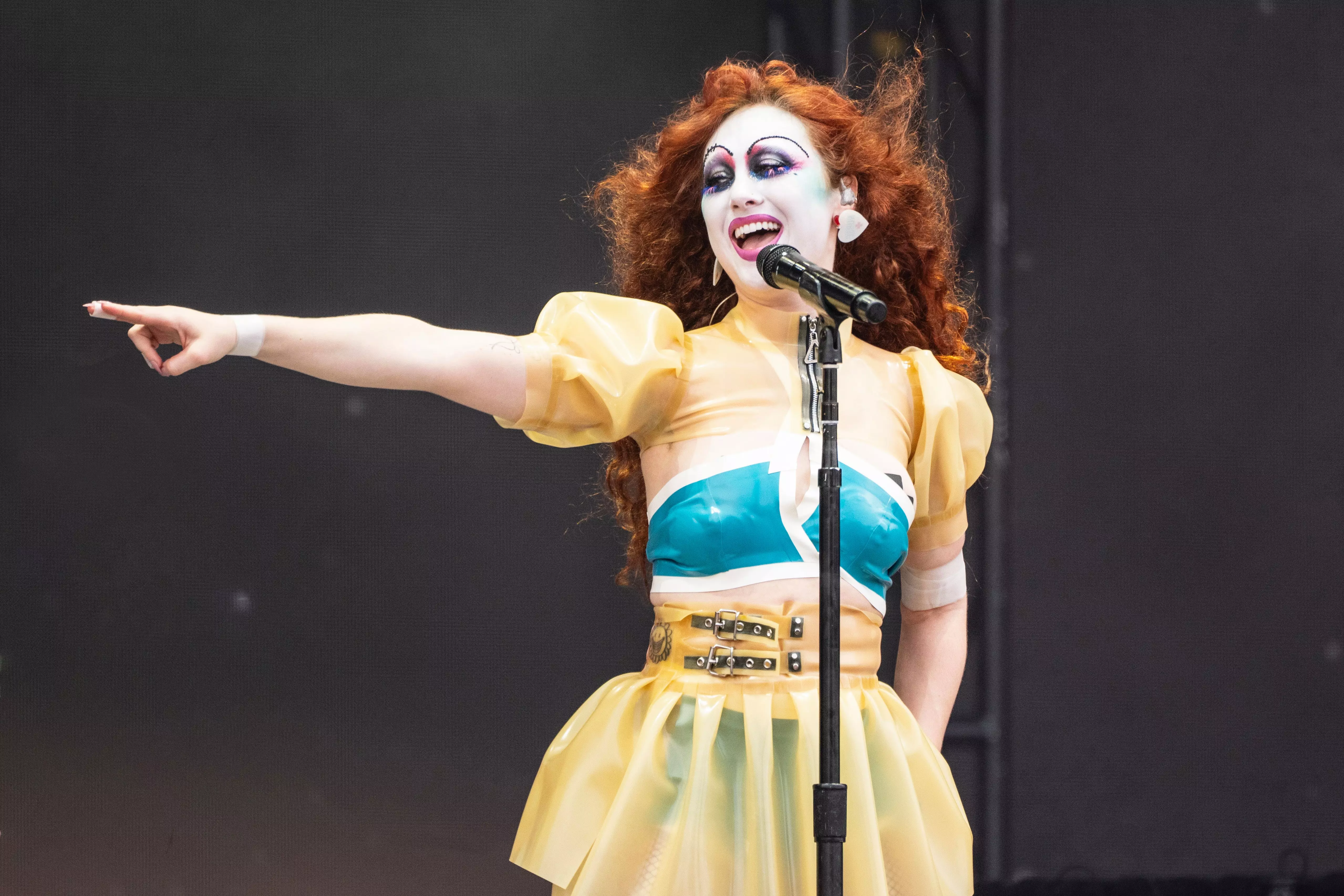
5 Artists Who Graduated From GRAMMY Camp: Chappell Roan, Maren Morris, Blu DeTiger & More
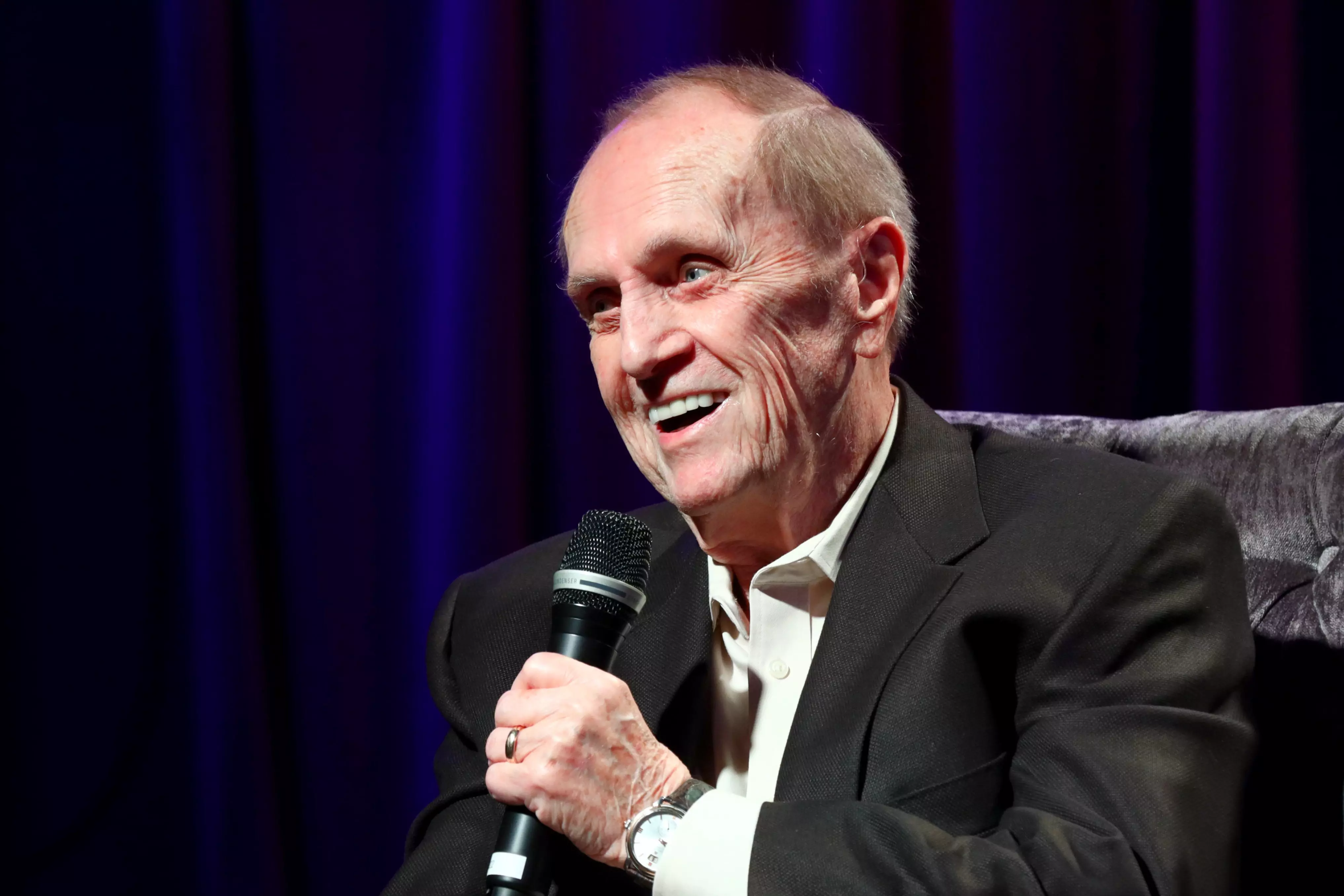
Remembering Bob Newhart, The Comic Who Made GRAMMY History With His Debut Album
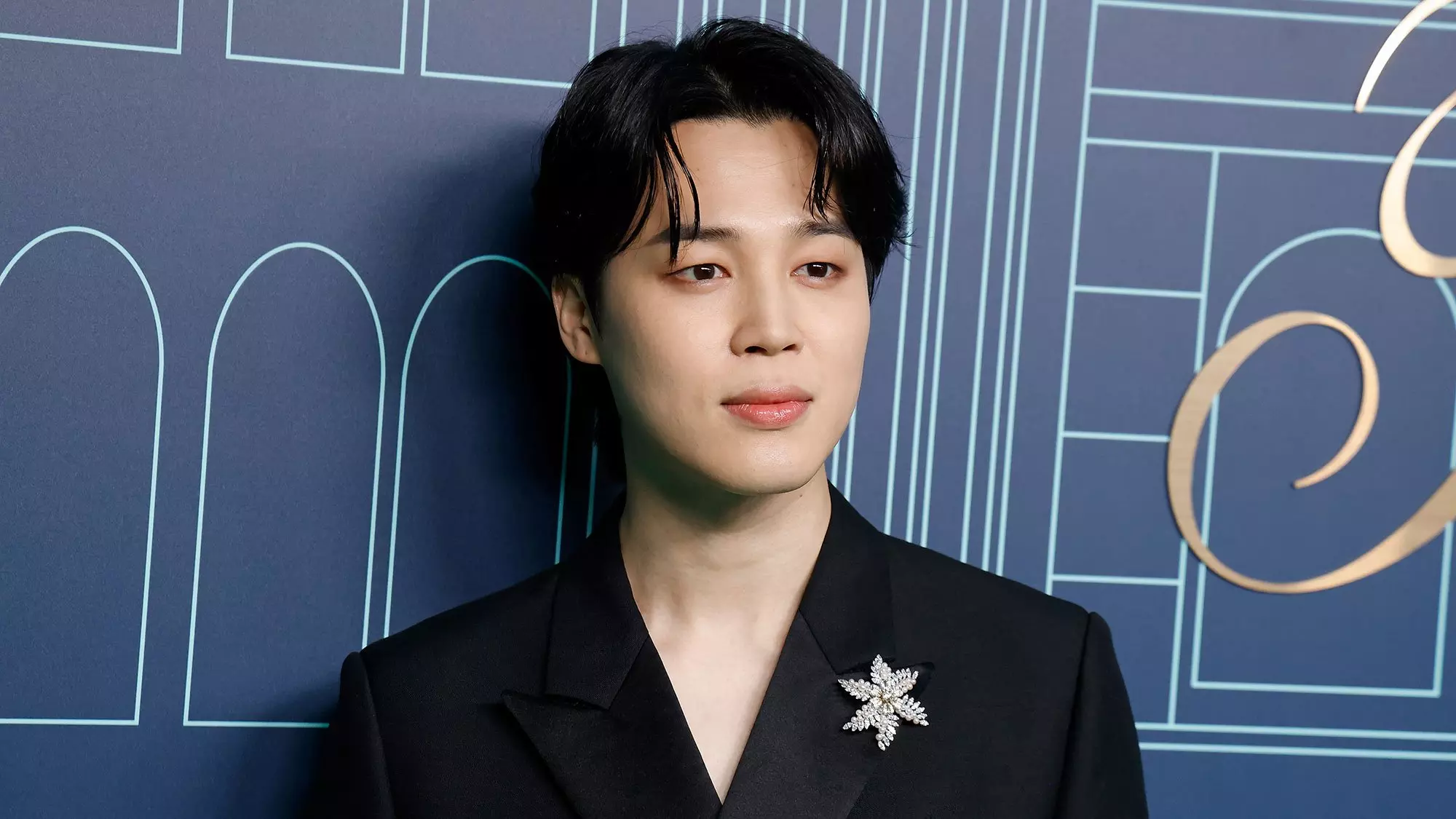
5 Takeaways from BTS Jimin's New Album, 'MUSE': A Bold Exploration Of Love And Inspiration
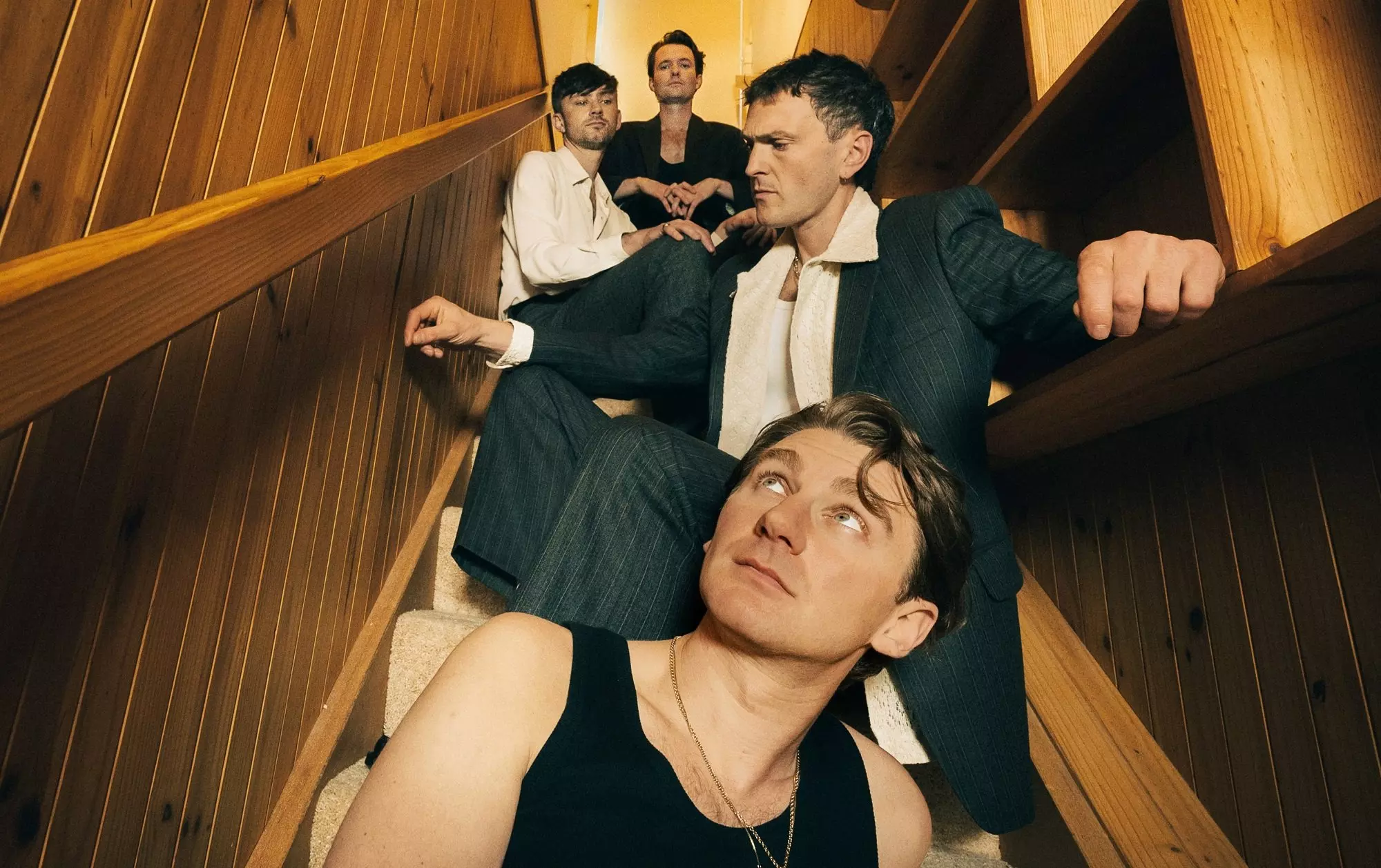
Ladies And Gentlemen, Glass Animals Are Floating In Space

Watch Stevie Wonder Win Album Of The Year
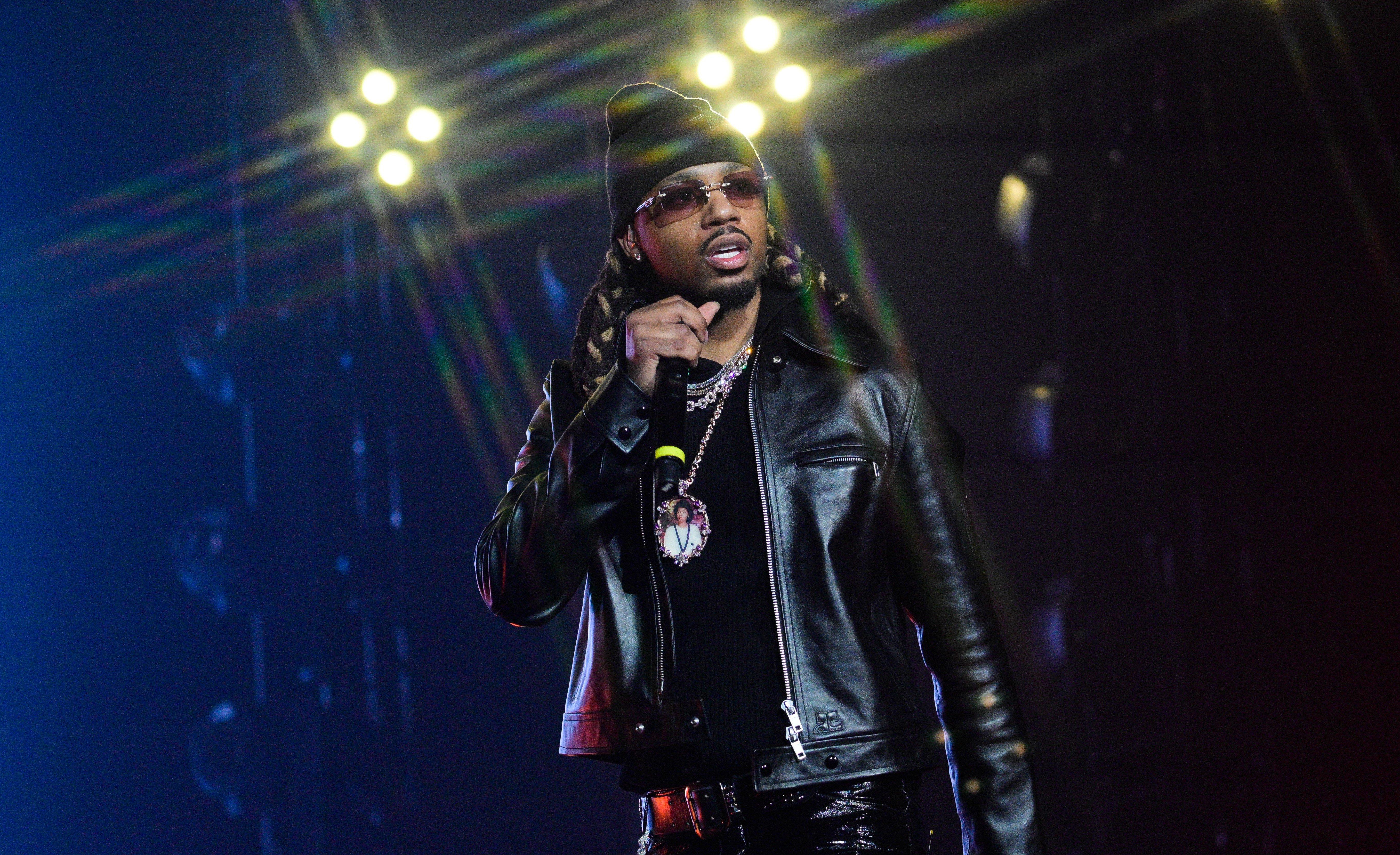
Photo: Prince Williams/Wireimage
list
Metro Boomin's Essential Songs: 10 Must-Know Tracks, From "Creepin" To "Like That"
The 2024 GRAMMY nominee for Producer Of The Year is one of hip-hop's most in-demand minds. Between his collab albums with Future and some highly debated beefs with rap's biggest stars, it's the perfect time to revisit the Metro-verse.
Metro Boomin has spent more than a decade redefining rap music. The gloomy, 808-induced trap beats that flood radio airwaves and blare from nightclub speakers are a symbol of his influence. But now, the Atlanta-based superproducer is on one of his biggest musical runs to date.
In April, Metro released the second of two joint albums with Future, hinted at a third release this year, sold out a concert at the Kundalini Grand Pyramids in Egypt, and clinched the No. 1 spot on Billboard’s Hot 100 with "Like That" featuring Kendrick Lamar. He also delivered a first-of-its-kind instrumental diss aimed at Drake called "BBL Drizzy," accusing the Toronto rapper of going under the knife.
The diss was in response to Drake’s "Push Ups" and subsequent disses toward Kendrick Lamar. "Metro shut your hoe ass up and make some drums" he rapped. The verbal blow inspired Metro to release the hilarious instrumental, which he encouraged fans to rap on for a chance to win a free beat.
Months before the feud, Metro celebrated two nominations for Best Rap Album and Producer of the Year, Non-Classical at the 66th GRAMMY Awards. While he didn’t take home a coveted golden gramophone, the momentum has elevated his career to new heights.
Before the St. Louis-bred producer kicks off the We Trust You tour with Future on July 30, revisit 10 of Metro Boomin's biggest releases.
"Karate Chop" (2013)
A 19-year-old Metro crafted his first charting single right before making a life-changing move to Atlanta. With piercing synths and bubbly arpeggios, the song was the lead single for Future’s highly anticipated sophomore album, Honest.
But Metro, a freshman at Morehouse College at the time, wasn’t sold on its success. "I never really like it," Metro told XXL. "Then every time people would come into the studio, he would always play the record and I was like, ‘Why are you so stuck on this s—? We have way harder records.’"
But after cranking out a new mix on the original track, "Karate Chop" went on to become his first placement on a major label album. The remix with Lil Wayne further elevated the record and, by virtue, Metro’s profile as a musical craftsman.
"Jumpman" (2015)
Metro mastered the late-summer anthem in 2015 with "Jumpman." The song was the most notable hit from Drake and Future’s collaborative mixtape, What a Time to Be Alive, and went on to shut down bustling nightclubs and obscure strip joints. And while the record didn’t perform as well as other songs on this list, it secured Future his first Top 20 hit.
The song — which features Metro’s signature bass and a screeching raven sound effect — also saw a streaming boost after an Apple Music commercial featuring Taylor Swift rapping to the song. According to Adweek, the campaign helped generate a 431 percent increase in global sales
What makes "Jumpman" even more special is that a collab between Future, Metro, and Drake may never happen again. Reportedly, the duo is at odds with Drake because the OVO artist decided to link with 21 Savage on Her Loss instead of doing a follow-up project with Future.
"Father Stretch My Hands Pt. 1" (2016)
"Father Stretch My Hands Pt. 1" is the song that set Kanye West’s album, Life of Pablo, ablaze. Opening with a clip of gospel musician and singer T.L. Barrett’s Father I Stretch My Hands,” Metro’s signature producer tag kicks the record into full gear. The pulsating synthesizers and bouncy percussion match West’s raunchy and sexually explicit lyrics.
Metro’s production received significant praise, with several publications pointing to his contributions on end-of-year listings. And in the eight years since its release, "Father Stretch My Hands Pt. 1" has been certified six times platinum by the Recording Industry Association of America, making it one of Ye’s most-sold records of all time.
"Congratulations" (2016)
After the success of "White Iverson," a young Post Malone was on the hunt for the hottest producers in the rap game. He managed to land Metro, who worked with fellow producers Frank Dukes and the prolific Louis Bell on the triumphant trap record "Congratulations."
On a 2022 episode of the podcast "Full Send," Metro revealed that the celebratory song was made after watching the world’s greatest athletes eclipse historic feats of their own. "I remember the Olympics was on TV, and just how the music was sounding, it sounded like some champion s—," he said.
"Congratulations" marked Post Malone’s second Top 20 hit following his debut, "White Iverson." The song was certified diamond after totaling more than 11 million combined sales. Today, it remains one of Metro’s biggest achievements.
"Bad and Boujee" (2017)
Fueled by virality and a shoutout from Donald Glover at the 2017 Golden Globes, the Migos and Lil Uzi Vert’s "Bad and Boujee" landed Metro Boomin his first No. 1 Billboard hit as a producer.
The song has every element Metro fans have grown to love: moody keys, hard-hitting bass, and plenty of room for the artists’ adlibs to pierce through the track.
Two months before its eventual ascension, the song had a steep hill to climb atop the Billboard charts. But Metro’s production and the chemistry between Quavo, Offset, and Uzi helped the record shoot up to its rightful place. It continues to garner praise In the years since its 2016 release, too. It was ranked No. 451 on Rolling Stone’s "500 Greatest Songs of All Time" list
"Mask Off" (2017)
When "Mask Off" dropped in 2017, it scorched the Billboard charts. Hip-hop was flirting with flutes (as heard on songs like Drake’s "Portland" and Kodak Black’s "Tunnel Vision" — another Metro-produced beat) — but "Mask Off" stands out as the biggest song of the short-lived era.
Metro infused jazz-like undertones to perfectly meld the flute lick into the dark and mystic beat. The record led to the remix with Kendrick Lamar, with his verse breathing new life into the already-seismic hit. It’s now certified nine times platinum.
Years after the song’s release, Future said "Mask Off" initially put radio programmers in disarray. In his East Atlanta rapper’s Apple Music documentary The WIZRD, he revealed that the song dropped before Carlton WIlliams’ "Prison Song" sample was officially cleared. "Out of all the songs, ‘Mask Off’ wasn’t even legit," he said. "The s— was on the radio, they’re thinking it’s not a sample, but it got so big they were like, ‘It’s a sample.’"
"Heartless" (2019)
The Weeknd's "Heartless" is a pop and electro-clash classic that fires on all cylinders. The visuals are atmospheric, the lyrics are ultra-stimulating, and the production — partly handled by Metro — makes for a lasting club banger.
The leading single for The Weeknd’s fourth studio album, After Hours, topped the Billboard charts. It marked the Toronto-born crooner’s fourth No. 1 hit and unveiled the depths of Metro’s musical arsenal.
Metro produced four tracks on After Hours: "Faith," "Escape from L.A.," "Until I Bleed Out" and "Heartless." On the latter and in his other collaborations with The Weeknd, James Blake, and Solange, Metro’s creative sorcery was tested. He proved, once again, that he could generate a hit outside the confines of trap music.
"Creepin’" (2022)
After a solid outing on his first album Not All Heroes Wear Capes, Metro returned with another series of hard-hitting records. His second solo venture, Heroes & Villains, featured John Legend, Don Tolliver, Travis Scott, and other premiere artists. But the biggest song to come out of the star-studded lineup was "Creepin’" featuring 21 Savage and The Weeknd.
The only single to Metro’s second solo album struck sonic gold. The Weeknd’s flowy vocals overlay the silky and harmonic record, which transitions to a more trap-induced beat once 21 Savage’s verse kicks in. The remake of Mario Winans’ "I Don’t Wanna Know" was a notable departure from Metro’s past singles, which heavily lean on his trap roots. But it still managed to connect with his audience – and even beyond it. "Creepin" peaked at No. 3 on Billboard, which was Metro’s highest-charting solo record up until that point.
Spider-Man: Across The Spider-Verse (2023)
Following the success of "Creepin’" and his other smash singles, Metro extended his creative powers to the film world. He was given the green light to executive produce the soundtrack for Sony’s Spider-Man: Across the Spider-Verse.
Metro Boomin told Indie Wire that he crafted songs from rough animations and selected scenes "just to get in the world and the story of Miles [Morales] and what he’s going through," He even exchanged phone calls and texts with the film’s composer Daniel Pemberton to ensure the soundtrack and score were on the same accord.
From the classical serenade "Am I Dreaming" to the Latin swing of "Silk & Cologne" and the Timbaland-stomping "Nas Morales," the result was an equally transformative musical experience. Each record ranged in musicality and tone while beautifully complementing the vibrant animated superhero flick.
"Like That" (2024)
"Like That" is easily one of the best beats in Metro’s catalog, and may end up being one of the most memorable. Samples from Rodney O & Joe Cooley’s "Everlasting Bass" and Eazy-E’s 1989 classic "Eazy-Duz-It" shaped the bouncy trap beat, sinister synths, and spine-chilling baseline. But Kendrick Lamar’s verse turned it into a heat-seeking missile.
With the song’s thunderous bass and rapid hi-hats in the background, Kendrick dissed J. Cole and Drake for their recent claims of rap supremacy, particularly on 2023’s "First Person Shooter." The lyrical nuke sparked the Civil War-style rap feud, which led to a seven-song exchange between Kendrick and Drake.
The initial musical blow made the genre stand still. It also led to the massive success of the record, which notched Future and Metro another No. 1 hit song. It also helped the pair’s album, We Don’t Trust You, claim the top spot on the Billboard 200 albums chart.
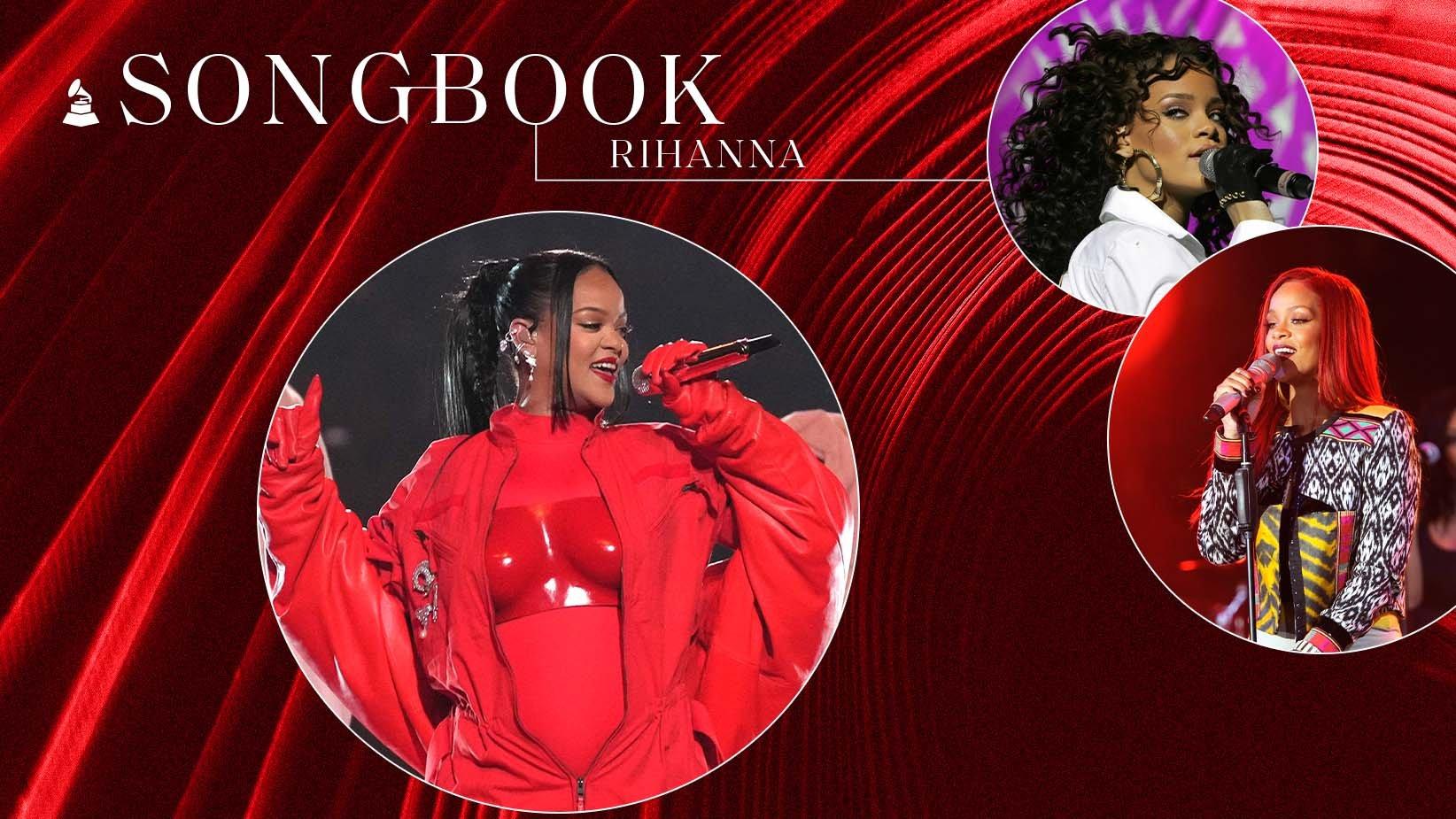
Photos: Kevin Mazur/Getty Images for Roc Nation, Greetsia Tent/WireImage, Kevin Mazur/WireImage
feature
Songbook: The Ultimate Guide To Rihanna's Reign, From Her Record-Breaking Hits To Unforgettable Collabs
As the world eagerly awaits Rihanna's musical comeback, GRAMMY.com takes a deep dive into the superstar's catalog and celebrates her evolution from teen idol to beloved icon.
A chance meeting changed Rihanna's life.
The singer was just 15 years old when she met producer Evan Rogers, who was vacationing with his wife in Barbados. Rogers recognized Rihanna's potential, and invited her to an audition in his hotel suite.
Shortly after her 16th birthday, Rihanna left her home country for the U.S. to record a demo, which included her breakthrough hit "Pon de Replay." The demo found its way into Jay-Z's hands, and Hov signed the teen artist to Def Jam and the label expedited her 2005 debut album, aptly titled Music of the Sun.
"When I left Barbados, I didn't look back," Rihanna told Entertainment Weekly in 2007. "I wanted to do what I had to do [to succeed], even if it meant moving to America."
Twenty years later, Rihanna is a renowned entertainer-turned-mogul. She has sold over 40 million albums worldwide, garnered over 12 billion Spotify streams, achieved 14 Billboard Hot 100 chart-toppers, and won nine GRAMMY Awards. Even her business ventures have been a massive success, as her Fenty Beauty brand is worth $2.8 billion.
Though it's been close to a decade since Rihanna's last studio album, 2016's ANTI, she reminded the world of her reign with her 2023 Super Bowl halftime show — which also marked her first time taking the stage in five years. Performing hit after hit while unveiling a baby bump, her 13-minute set became one of the most-watched halftime shows of all time with over 121 million viewers.
In honor of Rihanna's 36th birthday on Feb. 20, GRAMMY.com is revisiting the monstrous hits, ambitious projects, brow-raising visuals, and iconic collabs that propelled her to international stardom — and why it's all put her in a league of her own.
A New Island Girl In Town
True to her Carribean heritage, Rihanna's dancehall-inspired debut single "Pon de Replay" earned the then 17-year-old Barbados native her first entry on the Hot 100 at an impressive No. 2. Her official introduction to the world also hit No. 1 on the Billboard Dance Club Songs chart; she boasts 33 on the tally, second behind only the Queen of Pop herself, Madonna.
Follow-up single "If It's Lovin' That You Want" stalled at No. 36 on the Hot 100, but still whetted fans' appetite — as did her debut album, Music of the Sun, which is mostly comprised of dance-pop and dancehall tracks with hints of R&B (like "Willing to Wait"). Plus, her reimagining of Dawn Penn's 1994 reggae classic "You Don't Love Me (No, No, No)" is still so fun to listen to after all these years.
A mere eight months later, Rihanna's sophomore effort, 2006's A Girl Like Me, arrived to an eager audience. Defying the sophomore slump, she celebrated her first No. 1 with the ubiquitous lead single "SOS," which famously samples Soft Cell's 1981 hit, "Tainted Love." While A Girl Like Me is filled with high-energy, danceable tracks (including the nostalgic "Break It Off" with Sean Paul), Rihanna's second single was the melodramatic ballad "Unfaithful."
Penned by then-labelmate Ne-Yo, "Unfaithful" peaked at No. 6 on the Hot 100. More importantly, it showed a different side to Rihanna, proving that she could channel deep emotion when the performance calls for it. It also marked Rihanna's first time veering away from her "girl next door" image, as the song's subject matter deals with infidelity.
A Girl Like Me contains many fan favorites, from the laid-back "We Ride" to standouts "Dem Haters" and "Kisses Don't Lie." The latter is a reggae-rock hybrid that sounds like a catalyst for some of Rihanna's edgier tunes like "Breakin' Dishes" from 2007's Good Girl Gone Bad era. Touching ballads"Final Goodbye" and "A Million Miles Away" showcase her voice beautifully, foreshadowing later big-vocal numbers like "Love on the Brain."
An Icon In The Making
Rihanna was a familiar face by 2007, but with the arrival of her third studio album, Good Girl Gone Bad, she graduated from cookie-cutter pop star to bonafide icon.
Produced by Tricky Stewart, the LP's juggernaut lead single "Umbrella" featuring Jay-Z skyrocketed to No. 1 in 17 countries. Between striking images of Rihanna's silver-painted silhouette in the accompanying video and the now-iconic "ella-ella, eh, eh, eh" hook, "Umbrella" thrust the then 19-year-old into another stratosphere. Her confident delivery also commanded attention in a way fans and critics hadn't heard before.
The transformative era also birthed the gritty "Shut Up and Drive," on which Rihanna channels her inner rock star. The next two singles cracked the top 10: an affectionate duet with Ne-Yo, "Hate That I Love You," which showed off Rihanna's softer side, and the party-starting, Michael Jackson-sampling "Don't Stop the Music," which cemented her place in the digital era.
The melancholy "Rehab" is a clever metaphor for lost love, co-written by Timbaland and Justin Timberlake. Despite being Good Girl Gone Bad's lowest-charting single, Timberlake heralded the song as "the bridge for her to be accepted as an adult in the music industry."
Good Girl Gone Bad remains Rihanna's best-selling album and marks her greatest reinvention as she adopted a more rebellious sound. She also won her first GRAMMY in 2008 (Best Rap/Sung Collaboration for "Umbrella") and scored four other nominations, including Record Of The Year. The album's reissue spawned two more No. 1s: "Take a Bow" and "Disturbia," the latter of which acts like a prelude to Rated R, which saw Rihanna exploring darker themes.
Nine months before the release of 2009's Rated R, Rihanna was assaulted by then-boyfriend Chris Brown. On the deeply personal album, she translated her pain into art. Through lead single "Russian Roulette" and bitingly catchy anthems "Stupid in Love," "Fire Bomb," "Photographs," "Cold Case Love," and "The Last Song," Rihanna explored her angst and confusion.
But to focus solely on the domestic violence incident undermines Rihanna's artistic vision.
Following three multi-platinum albums in a three-year span, Rihanna's rebranding as a rebel at heart reached its apex. The singer had grown in leaps and bounds while taking musical risks, even penning nine of Rated R's 13 tracks (she had no writing credits on Good Girl Gone Bad).
The road to Rihanna's most badass anthems — including "Bitch Better Have My Money" — can be traced back to Rated R. Case in point: Her bravado is loud and clear on "Hard," "Wait Your Turn," and "G4L." On "Rockstar 101," which features legendary rocker Slash, Rihanna declares her power: "Six inch walker/ Big sh— talker/ I never play the victim/ I'd rather be a stalker."
Badgal RiRi returned to her dancehall roots on her fifth No. 1 "Rude Boy," which offsets the album's harrowing motif. Final single "Te Amo" didn't chart, but garnered a great deal of attention as the Latin-infused Stargate production depicts Rihanna being enticed by a female love interest.
Rated R showcased Rihanna's undeniable star power, and allowed her to shed her good-girl image once and for all.
A Partygoer's Dream
Following the career-pivoting Rated R, 2010's Loud offered a welcome return to the West Indian artist's earlier sound. The album feels like one big celebration of life, as evidenced by Rihanna's fire-engine red hair and No. 1 singles "Only Girl (In the World)" and "What's My Name?" (the latter of which was Rih's first collaboration with Drake).
Best described as "Don't Stop the Music" 2.0, the effervescent "Only Girl" marked her eminent return to the dance floor and took home a GRAMMY for Best Dance Recording in 2011. While "What's My Name?" may not outshine Rih and Drizzy's other collabs — including 2011's "Take Care" or 2016's "Work" — the second she sings, "Hey, boy, I really wanna see if you can go downtown with a girl like me," it's impossible not to whine your waist to the riddim.
Easily one of Rihanna's most overlooked hits, "Cheers (Drink to That)" is built around an unexpected sample of Avril Lavigne's 2002 hit "I'm With You," but it works surprisingly well as a party anthem. That same carefree spirit can be heard in the feminist track "Raining Men," which features Nicki Minaj — their first of two collabs, as they joined forces again for "Fly," the final single off the rapper's iconic Pink Friday album.
A playful ode to sadomasochism and bondage, "S&M" contains some of Rihanna's most provocative lyrics: "Sticks and stones may break my bones/ But chains and whips excite me," she declares on the chorus.
Banned in 11 countries upon its release, the accompanying video features Rihanna tied up in pink rope, dancing with a blowup doll, and donning a Playboy bunny-esque costume as damning newsreels about herself flash across the screen. But Rihanna's love of kink made her an even bigger star: "S&M" produced a remix with Britney Spears and earned Rihanna her 10th No. 1 single. With this feat, she became the youngest artist to attain the most chart-toppers in a five-year span.
On "Man Down," Rihanna's patois is in full effect as she takes listeners through a gripping tale about murdering her abuser. "What started out as a simple altercation/ Turned into a real sticky situation," she laments in the opening verse, amplified by siren noises in the background. There's something so satisfying about Rihanna's Bajan accent as she unfurls "Rum-pum-pum-pum" repeatedly over an intensifying reggae beat that would make Sister Nancy and Bob Marley proud.
Nominated for Album Of The Year at the 2021 GRAMMYs, Loud is Rihanna's second most commercially successful LP — and for good reason. It was especially refreshing to see Rihanna emerge from one of the darkest periods of her life as exuberant as ever.
An Unapologetic Queen
Sonically and thematically, Talk That Talk doesn't break new ground, but Rih's DGAF attitude is front and center with plenty of sexual innuendos: Songs like "S&M" and "Rude Boy" seem pretty tame next to "Cockiness (Love It)," which features longtime friend-turned-boyfriend A$AP Rocky on its remix. "Suck my cockiness/ Lick my persuasion/ Eat my poison/ And swallow your pride down, down," she commands in the tantalizing chorus.
At just over a minute long, "Birthday Cake" leaves nothing to the imagination ("It's not even my birthday, but he wanna lick the icing off"). Rihanna controversially released a full-length version in the form of a remix with Chris Brown.
On an album that mostly sees Rihanna singing about her sexual fantasies, "We All Want Love" pulls back the curtain as it reveals her desire for true love: "And some say love ain't worth the buck/ But I'll give my last dime/ To have what I've only been dreaming about."
Her longing continues in "Where Have You Been," which flaunts Rihanna's versatility, flipping Geoff Mack's 1959 country song "I've Been Everywhere" into an infectious EDM banger. Lead single "We Found Love" is undeniably the biggest hit to stem from the Talk That Talk era, spending 10 consecutive weeks atop the Hot 100.
Boosting Calvin Harris' career, "We Found Love" presents one juxtaposition after the other: dark yet gleaming, euphoric yet sobering, fraught yet hopeful. Rihanna relies on more than just evocative lyrics to tell her story; accompanying synthesizers and alarm bells help to paint a picture as well. Met with controversy, its intense visuals portraying a drug-fueled, toxic relationship — and featuringwhat many speculated was a Chris Brown look-alike — earned RiRi a GRAMMY for Best Long Form Music Video in 2013.
Seven years into an already extraordinary career, 2012's Unapologetic became Rihanna's first album to debut at No. 1 on the all-genre Billboard 200 chart. Its lead single "Diamonds" resonated in an equally major way, giving Rih her 12th No. 1 on the Hot 100.
Written by Sia, the power ballad kicked off another exciting era for the Barbadian singer, who unleashes an impassioned vocal performance. One of Rihanna's most precious offerings to date, "Diamonds" emerged as a self-love mantra due to its uplifting "Shine bright like a diamond" chant.
Vocally, Rihanna's strength lies in her ability to evoke raw emotion à la "Stay." Featuring Mikky Ekko, the stripped-down, slow-burning piano ballad narrowly missed the top spot on the Hot 100 but gave Rihanna her 24th top 10 hit, surpassing Whitney Houston's record of 23 in 2013.
Her swagger is boisterous in "Phresh Out the Runway," "Jump," and strip club anthem "Pour It Up," but "Nobody's Business" really drives home the album's theme of being unbothered. Her decision to join forces with Chris Brown yet again perplexed fans and critics alike, though the track itself is an irresistible production that features a genius interpolation of Michael Jackson's "The Way You Make Me Feel."
Further down the track list, "Love Without Tragedy / Mother Mary" is as autobiographical as it gets, and further taps into Rihanna's emotionally vulnerable side. "Mr. Jesus, I'd love to be a queen/ But I'm from the left side of an island/ Never thought this many people would even know my name," she pleads in the seven-minute two-parter.
Unapologetic spawned fewer hit singles compared to Rihanna's previous efforts. Its win for Best Urban Contemporary Album at the 2014 GRAMMYs, however, proved that Rihanna's reign wasn't letting up anytime soon.
While recording her then-forthcoming album, ANTI, Rihanna delivered what is arguably the single most unapologetic moment of her career: "Bitch Better Have My Money." The backstory is almost inconceivable given Rihanna's awe-inspiring billionaire status, but in 2009, Rihanna faced bankruptcy due to her accountants mishandling her funds — and thus "Bitch" was born six years later in 2015.
With lyrics like "Your wife in the backseat of my brand new foreign car" over a cryptic-sounding trap beat and an accompanying video depicting kidnapping and torturing her debtors, "Bitch" is not for the faint-hearted. The one-off single is so quintessentially Rihanna that it notably kicked off her Super Bowl halftime show.
An In-Demand Collaborator
While bestowing hit after hit on her own, Rihanna generously lent her distinct voice to some of her biggest peers. 2008 marks one of the earliest instances of her Midas touch: She flirts with funk in Maroon 5's underappreciated "If I Never See Your Face Again" before hopping on T.I.'s "Live Your Life," which shot straight to No. 1 on the Hot 100.
In 2009, Rihanna joined Jay-Z and Kanye West for the militant "Run This Town," sounding defiant as ever in the intro. She was called upon again for West's horn-laden "All of the Lights," flying solo on the hook followed by a star-studded choir that included Alicia Keys, John Legend, Fergie, and Elton John. Both larger-than-life productions won GRAMMYs for Best Rap/Sung Collaboration in 2010 and 2012, respectively.
In between joining forces with Hov and Ye, Rihanna assisted Eminem in "Love the Way You Lie," which struck a nerve with many for its gut-wrenching lyrics shedding a light on abusive relationships. (Rih recorded an equally moving sequel for her Loud album.) Three years later, the two confronted their inner demons in "The Monster," and their musical chemistry scored a GRAMMY in 2015 for Best Rap/Sung Collaboration.
Amid smash collabs, Rihanna and Coldplay's intricate "Princess of China" number gets lost in the shuffle, but it speaks to her charm as it's the band's first album (2011's Mylo Xyloto) to feature another artist. Another overlooked jam, her sultry "Can't Remember to Forget You" duet with Shakira sees both stars trade lines about struggling to let go of an undeserving lover.
On paper, a collaboration between Rihanna, Kanye West, and Sir Paul McCartney may seem strange, but the unlikely trio is further proof that opposites attract. Their "FourFiveSeconds" is a pop-folk hybrid with a universal message about carrying the weight of the world on your shoulders. It's yet another example of Rihanna's willingness to push past her comfort zone to create something unique.
A year later, Rihanna got listeners on their feet by way of the Taylor Swift-penned "This Is What You Came For" with Calvin Harris. Understated compared to the duo's previous megahits ("We Found Love" and "Where Have You Been"), Harris' signature DJing style and Rih's ethereal vocals are a perfect match.
In 2017, Rih, DJ Khaled and Bryson Tiller dropped the song of the summer with "Wild Thoughts," which heavily borrows from Carlos Santana's 1999 GRAMMY-winning "Maria Maria." It may be DJ Khaled's song, but RiRi owns it from the very moment she utters, "I don't know if you could take it/ Know you wanna see me nakey, nakey, naked." The bop reached No. 2 on the Hot 100.
She spits bars in Kendrick Lamar's "Loyalty" and "Lemon" with N.E.R.D., the latter of which comes close to rivaling your favorite rappers' verses: "You can catch me, Rih, in the new La Ferrar'/ And the truck behind me got arms/ Yeah, longer than LeBron/ Just waitin' for my thumb like The Fonz."
No matter what genre Rihanna touches or what artist she links up with, she brings her full self to each session whilst completely immersing herself into the music — taking on different personas to make the collab well worth it.
An Artist Fully Realized
With 13 No. 1s and twice as many top 10 hits under her belt, Rihanna set out to create timeless music instead of chasing a radio-friendly formula with her 2016 magnum opus, ANTI.
But that shift began with 2015's criminally underrated "American Oxygen." Her most political statement at the time, the goosebump-inducing lyrics detail Rihanna's journey as an immigrant, foreshadowing her then soon-to-be massive Fenty Beauty success. "We sweat for a nickel and a dime/ Turn it into an empire," she sings in the chorus.
Released four years after Unapologetic — her longest gap between albums at the time — ANTI illustrated Rihanna's greater desire for quality over quantity. "I needed the music to match my growth," she told Vogue in 2016 about the making of ANTI. "I didn't want to get caught up with anything the world liked, anything the radio liked, anything that I liked, that I've already heard. I just wanted it to be me."
The black-and-white, red paint-splattered album cover signals a rebirth, featuring a real-life image of Rihanna as a child. ANTI lives up to its name in its first 40 seconds, via opening track "Consideration." The minute she declares, "I got to do things my own way, darling," it's apparent that ANTI is not your average Rihanna album.
Lead single "Work" is the closest to pre-ANTI Rihanna on an album that defies expectations. But the dancehall masterpiece is one of a kind for Rih's refusal to water down the Jamaican patois (different from her native language of Bajan Creole) — proving that she is fully aware of her impact as one of the biggest Caribbean-born artists to make it in the U.S.
Many non-understanding listeners described it as "gibberish" at the time. Yet, the general public didn't seem to mind: About a month after its release, "Work" became Rihanna's 14th and longest-running chart-topper on the Hot 100. Weeks later, ANTI became her second LP to top the Billboard 200 chart. Subsequently, Rihanna held the No. 1 spots on the Billboard 200 and Hot 100 simultaneously, her second time achieving such an impressive feat.
Read More: How Rihanna's "Work" Reinvigorated Dancehall
ANTI is full of pleasant surprises that show off her artistry. Rihanna comes out of left field with the Prince-inspired "Kiss It Better," the album's second single, which sees the superstar falling back on addictive sex that "feels like crack" to justify a destructive relationship. "Same Ol' Mistakes" is a cover of psychedelic rock band Tame Impala's "New Person, Same Old Mistakes" — her first time remaking another artist's song for her own album since "You Don't Love Me (No, No, No)" on Music of the Sun. The Western-themed "Desperado" lends itself particularly well to covers by country artists, while the Dido-sampling "Never Ending" conveys the uncertainty she feels about entering a new relationship.
Elsewhere on ANTI, Rihanna drunk dials an ex ("Higher"), compares smoking weed to her lover ("James Joint"), and chastises a guy for getting emotionally attached after their fling ("Needed Me"). The latter song contains one of Rihanna's most empowering lyrics: "Didn't they tell you that I was a savage?/ F— ya white horse and ya carriage," she asserts in the pre-chorus.
Her voice sounds stronger than ever on "Love on the Brain," a doo-wop ballad resembling Etta James. But Rihanna makes it her own thanks to the bluntness of lines like "It beats me black and blue but it f— me so good."
The deep cuts on ANTI aren't merely fillers, and even rival some of the album's biggest hits. For instance, "Sex with Me" is featured on the deluxe edition as a bonus track, but managed to crack the Hot 100 at No. 83 and reach No. 8 on the R&B/Hip-Hop Airplay chart. Furthermore, the deluxe edition consists of 16 tracks, half of which topped the Dance Club Songs chart — smashing the record (previously held by Katy Perry's Teenage Dream) for the most No. 1s from a single album.
Accolades aside, ANTI is proof that magic happens when an artist of Rihanna's caliber follows their own instincts in pursuit of creating a body of work — one that can outlast them and continue to inspire generations to come.
Ever since ANTI, Rihanna's devoted fanbase has been begging for a new album, with Rih playfully trolling them with responses like "I lost it" and Instagram captions that read, "Me listening to R9 by myself and refusing to release it."
Her much-awaited return to music came at the tail end of 2022. The hitmaker twice contributed to the GRAMMY-nominated Black Panther: Wakanda Forever soundtrack: "Born Again" and "Lift Me Up," the latter of which helped Rihanna score her first Oscar and Golden Globe nominations in 2022 and 2023, respectively. With the glorious "Lift Me Up," she found herself in the top 10 for the first time since 2017's "Wild Thoughts."
While the world is still anticipating her ninth studio album, Rihanna — now a mom of two boys — continues to make her own rules and move at her own pace. But as she's proven time and time again, it's always worth the wait.
The Rihanna Essentials: 15 Singles To Celebrate The Singer's Endless Pop Reign
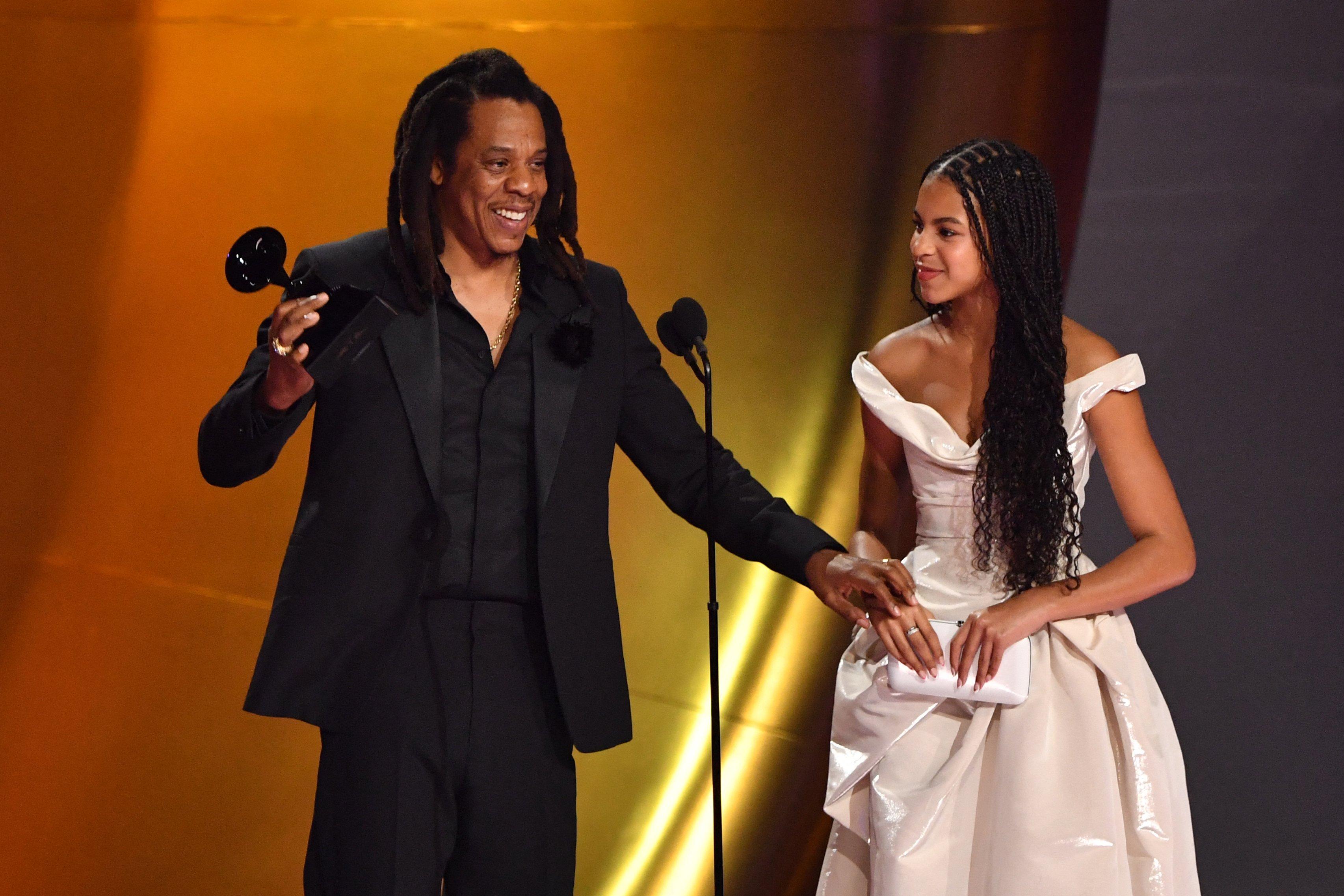
Photo: VALERIE MACON/AFP via Getty Images
news
2024 GRAMMYs: Jay-Z Receives Dr. Dre Global Impact Award
Alongside his daughter Blue Ivy, Jay-Z accepted the Dr. Dre Global Impact Award at the 2024 GRAMMYs with an inspiring speech.
Shawn "Jay-Z" Carter became the second-ever recipient of the Dr. Dre Global Impact Award for his many achievements across a career that has spanned decades.
A 24-time GRAMMY winner and 88-time nominee, Jay-Z was presented the Global Impact Award after being introduced by host Trevor Noah.
With his daughter Blue Ivy at his side onstage, Jay-Z first joked that his latest golden gramophone is no longer needed as the "gold sippy cup" like the one he won in 2014.
He then delivered a powerful speech that touched upon hip-hop's history, discussing its struggle to get recognized by the Academy and his own decision to boycott the show in 1998. He also thanked Dr. Dre and Snoop Dogg for opening up opportunities for himself and other East Coast Rap artists and encouraged artists to keep pushing.
"You gotta keep showing up. Just keep showing up until they give you all those accolades you feel you deserve, until they call you genius, until they call you chairman, until they call you the greatest of all time. Feel me?"
The Dr. Dre Global Impact Award was first awarded at the 2023 GRAMMYs to its namesake, Dr. Dre. Revisit his speech here.
2024 GRAMMY Nominations: See The Full Winners & Nominees List
